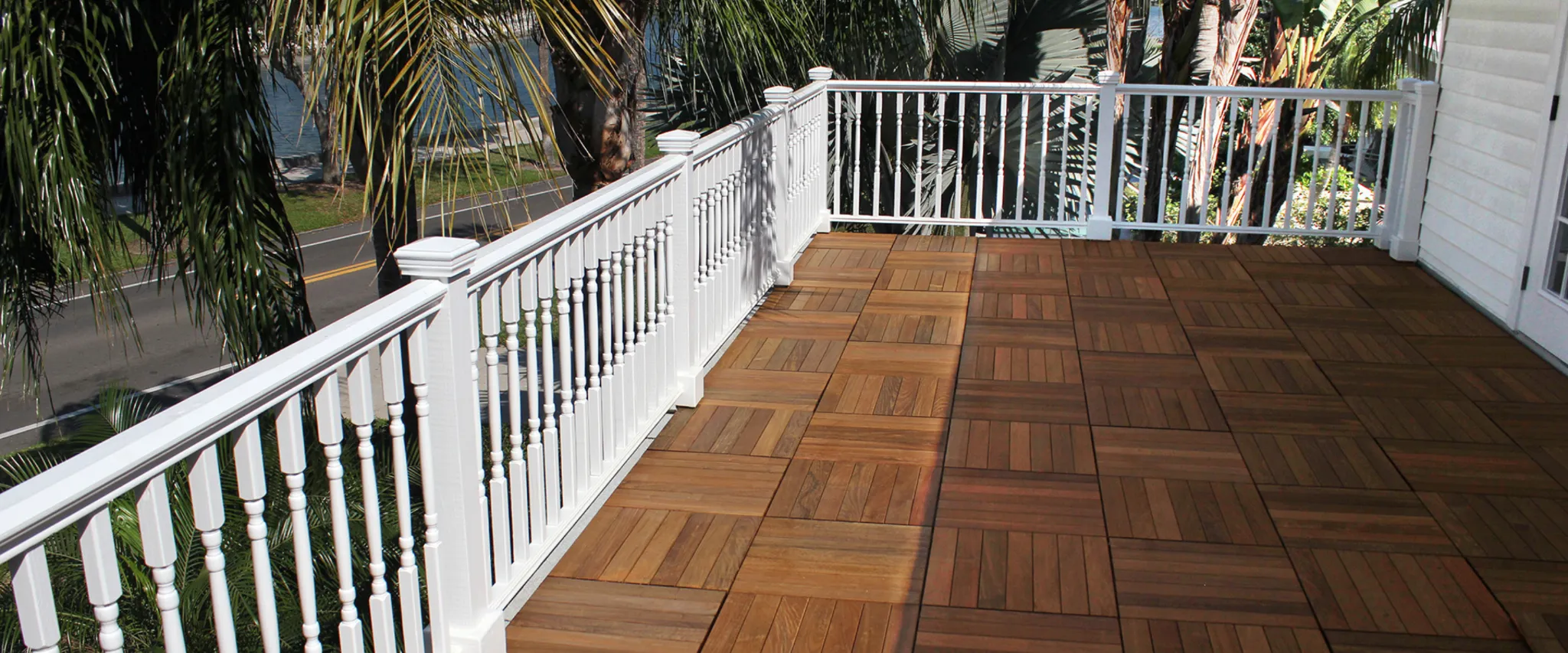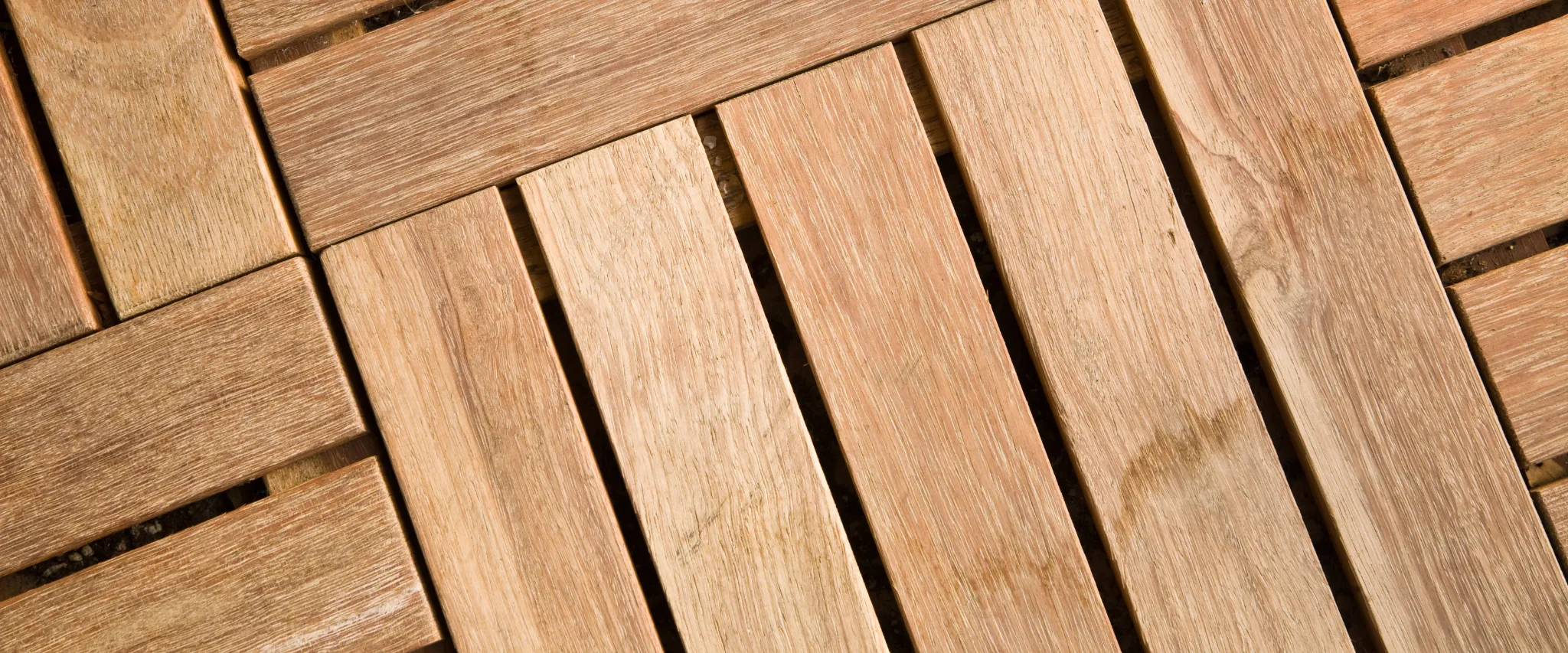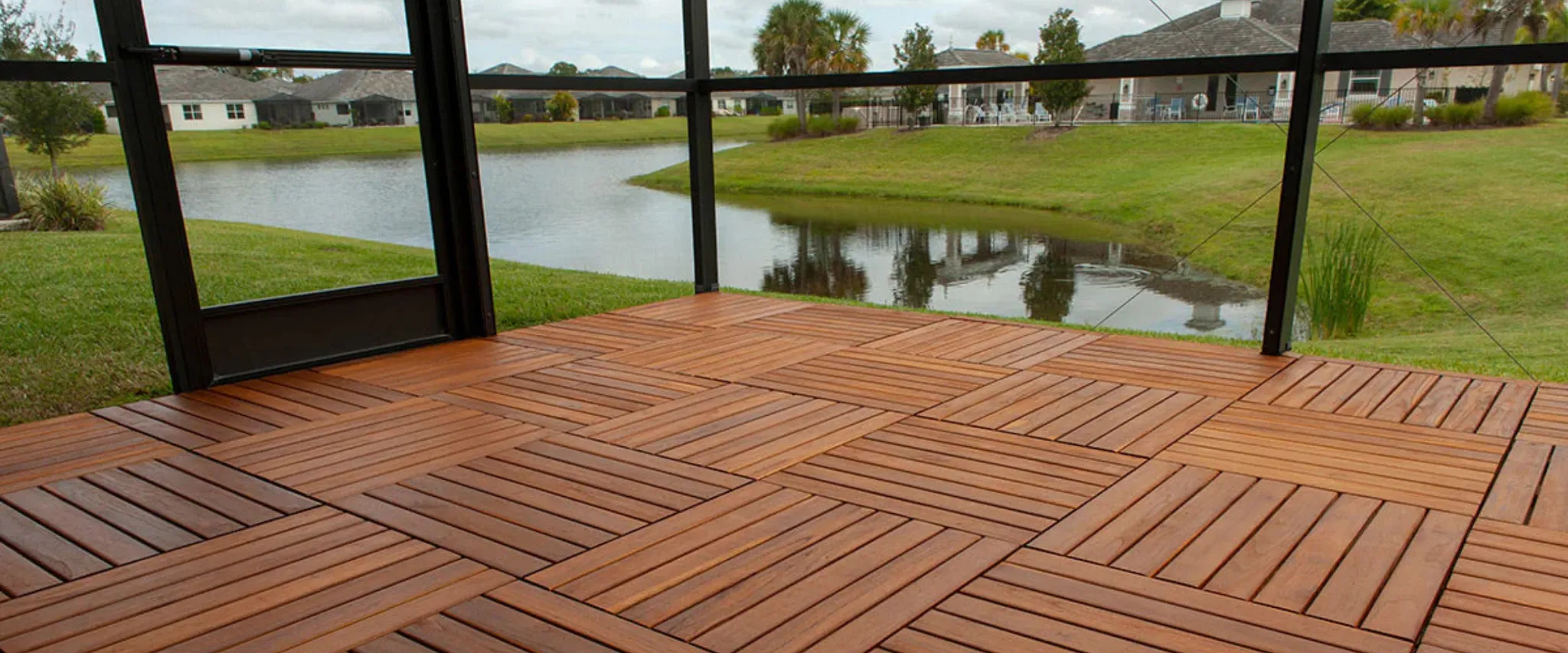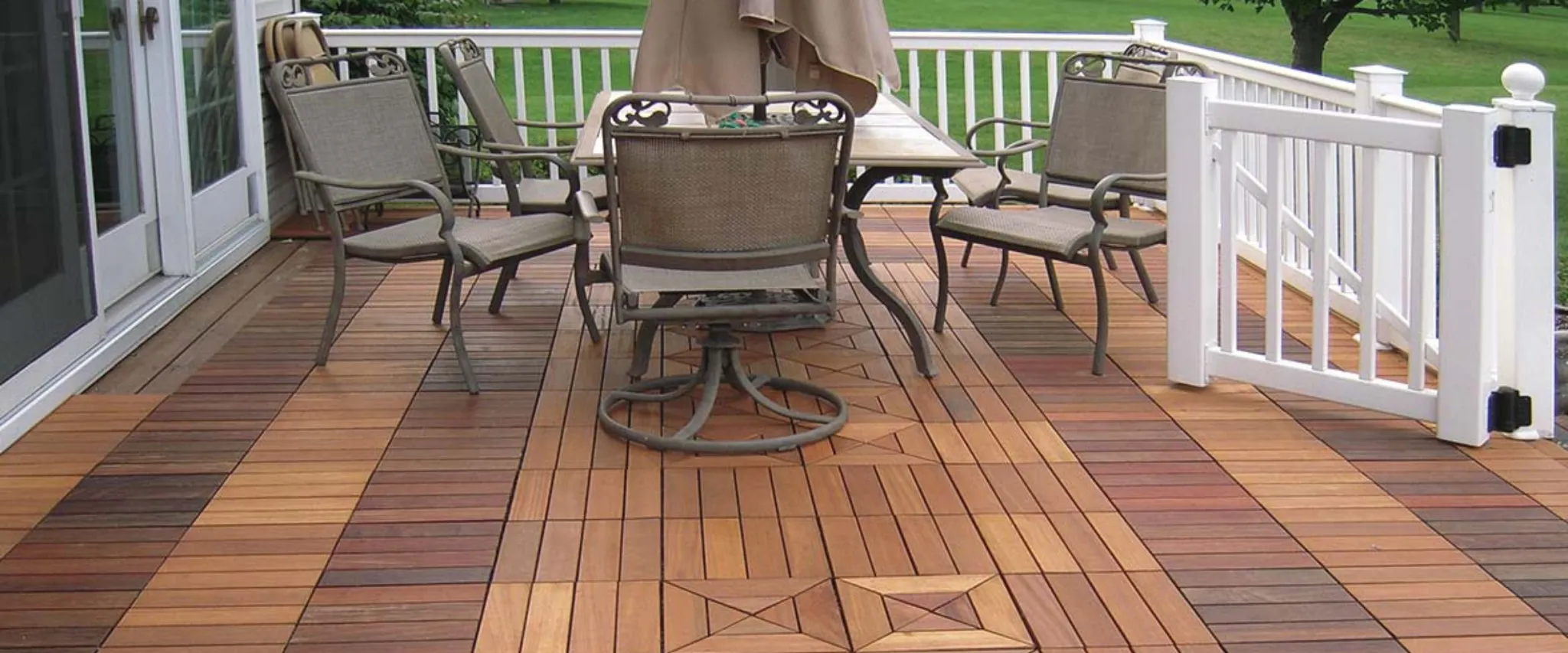Deck Tiles Pros and Cons: Is This the Right Choice for Your Outdoor Space?
Deck tiles are a quick and easy way to refresh an outdoor space without the full commitment of traditional wood decking. These tiles are versatile, can often be installed over existing surfaces, and come in a range of materials from composite to traditional wood.
Whether you’re sprucing up your patio or creating a brand-new deck, let’s break down the pros and cons of deck tiles to see if they’re the right fit for your outdoor area.

Key Takeaways
- Deck tiles are modular and easy to install, often requiring no special tools, making them perfect for DIY projects and quick surface revamps.
- Composite deck tiles resist weather, rot, and fading, offering long-lasting, low-maintenance alternatives to traditional wood decking.
- Deck tiles are budget-friendly, often made from recycled materials, and can be installed without professional help, reducing labor costs.
- Deck tiles may shift on uneven surfaces, have limited design flexibility, and can trap moisture or heat, requiring proper installation and shading.
What Are Deck Tiles?
Deck tiles are modular, square-shaped tiles that fit together to form a flat surface for your deck or patio. They’re usually made from composite materials, wood, or recycled materials, and they’re designed to easily snap or click into place, allowing for a straightforward installation. Deck tiles can be placed over existing surfaces, like concrete or an old wooden deck, which makes them an excellent choice if you want to revamp your space quickly.
Pros of Deck Tiles
- Easy Installation
One of the biggest benefits of deck tiles is how simple they are to install. Unlike traditional decking, which can take days to put together, decking tiles can be snapped or locked into place within hours. This is especially handy for DIY enthusiasts or anyone who wants a quick project.
- No Special Tools Needed: Most deck tiles don’t require special tools for installation, making it easier for a first-timer to handle.
- Install Over Existing Surfaces: Deck tiles can be placed over existing surfaces like concrete or even an old wooden deck, saving you the hassle of tearing out the old surface.
- Low Maintenance
Composite deck tiles, in particular, are known for being low-maintenance. While traditional wood decking needs regular sanding, staining, and sealing, composite tiles are resistant to rot, fading, and mold. This means less upkeep and more time enjoying your outdoor space.
- Resistant to Weather: Composite deck tiles are made from composite materials that don’t warp or crack under various weather conditions.
- Long-Lasting: These tiles often have a longer lifespan than traditional wood due to their resistance to moisture and insects.
- Variety of Styles and Materials
Decking tiles come in a variety of materials, including wood decking, composite deck tiles, and even tiles made from recycled materials. This allows you to customize the look of your outdoor space based on your personal taste and the surrounding environment.
- Wood Decking Options: Traditional wood decking tiles add a natural, classic look.
- Composite Deck Tiles: These tiles are available in different colors and finishes, mimicking the appearance of wood without the upkeep.
- Eco-Friendly Choices: Many composite tiles are made from recycled materials, making them a more sustainable option for eco-conscious homeowners.
- Cost-Effective
Compared to a full traditional wood deck installation, deck tiles are often a more budget-friendly option. They allow you to create a deck-like surface without the high costs of materials and labor associated with traditional wood decking.
- No Professional Installation Needed: Since many homeowners can install decking tiles themselves, this can save on labor costs.
- Affordable Options: With options in both composite and traditional wood, there’s something to fit nearly every budget.
- Flexibility and Portability
If you’re looking for something temporary or flexible, decking tiles are a great choice. They can easily be removed or rearranged if you change your mind or need a different configuration.
- Great for Renters: Since they’re easy to remove, decking tiles are ideal for renters who want to personalize their outdoor space without making permanent changes.
- Seasonal Adjustments: Deck tiles can be taken up and stored away during winter months, preserving them from harsh weather.

Cons of Deck Tiles
Not as Durable as Traditional Decking
While composite deck tiles and traditional wood decking tiles are durable, they may not last as long as a properly installed, solid wood deck. Tiles are modular, so they can sometimes shift over time, especially on uneven surfaces.
- Can Shift on Uneven Surfaces: If the base surface isn’t completely level, the tiles may move or come loose over time.
- Limited Durability in Harsh Climates: In areas with extreme weather, even composite deck tiles might experience some wear and tear.
Limited Design Flexibility
Decking tiles are typically only available in square shapes, which means your design options might be limited compared to traditional decking materials that can be cut into different shapes.
- Basic Patterns: While you can create some patterns with deck tiles, you’re limited to more basic designs.
- Harder to Customize: Unlike traditional wood, which can be cut to fit any layout, tiles have to be pieced together in uniform squares.
Potential for Water Accumulation
Deck tiles allow some water to drain through, but in heavy rain, water may collect underneath the tiles, which can lead to issues if there’s not enough drainage.
- May Trap Moisture: On concrete or other non-porous surfaces, water can accumulate underneath the tiles, possibly leading to mold or mildew over time.
- Limited Breathability: Wood decking and other traditional materials often allow for better airflow beneath the deck.
Surface Heat in Direct Sunlight
Composite deck tiles can get quite hot under direct sunlight, which may make them uncomfortable to walk on during summer months.
- Heat Retention: Composite materials tend to hold onto heat, which can make them hot to the touch.
- May Require Shading: You may need to install some form of shading, like a pergola, to keep the tiles cooler in sunny areas.
| Feature | Composite Deck Tiles | Traditional Wood Decking |
|---|---|---|
| Installation | Quick and easy, DIY-friendly | Requires professional installation |
| Maintenance | Low-maintenance | Requires regular sealing/staining |
| Durability | Durable but may shift on uneven surfaces | Very durable, especially with cedar or redwood |
| Eco-Friendliness | Often made from recycled materials | Uses natural wood, can be sustainable |
| Cost | Generally affordable | Higher upfront cost |
| Aesthetics | Various colors, can mimic wood | Classic, natural wood look |
| Comfort | Can get hot in direct sun | Natural material, cooler to touch |
| Portability | Portable, easy to rearrange | Permanent once installed |

FAQs
Yes, deck tiles are designed for easy DIY installation. Most simply snap together, making them perfect for homeowners looking for a quick project.
Many composite deck tiles are made from recycled materials, which makes them a more sustainable choice compared to traditional wood.
While durable, deck tiles might not last as long as traditional wood decking, especially if installed on an uneven surface. However, with proper care, they can still serve you well for years.
It’s best to install deck tiles on a flat, stable surface. Uneven surfaces can cause the tiles to shift or become unstable over time.
Composite deck tiles can get hot in direct sunlight. Consider adding shade if this is a concern, or go for traditional wood if you’re in a sunny area.

Transform Your Outdoor Space with Riverview Decks
Whether you’re drawn to the easy installation of deck tiles or the classic charm of traditional wood decking, your outdoor space can benefit from either choice. At Riverview Decks, we’re here to help you make the right choice for your style, budget, and outdoor needs.
Ready to transform your deck? Contact us today at (865) 801-4545 and let us bring your dream deck installation project to life!

